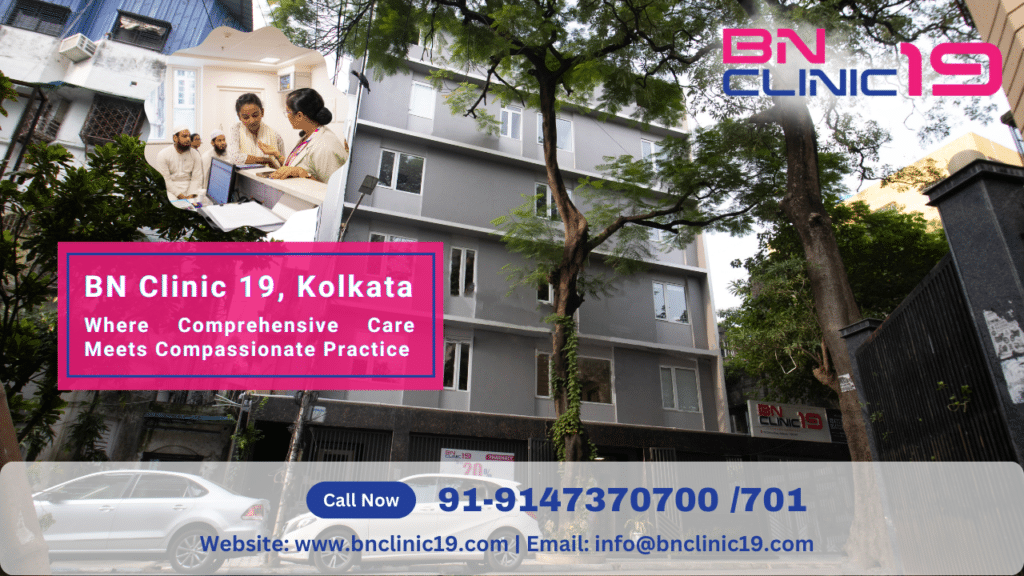Sinus infections, also known as sinusitis, are a common condition that affects children and adults alike. They occur when the sinuses become inflamed or blocked due to infection, allergies, or other underlying conditions. Sinus infections can cause discomfort, headaches, and breathing difficulties, and if left untreated, they may lead to chronic sinusitis or complications.
Understanding the symptoms, causes, and treatment options for sinus infections can help manage the condition effectively and prevent recurring episodes.
What is a Sinus Infection?
Sinuses are air-filled cavities in the skull that help humidify the air we breathe and produce mucus to trap dust and bacteria. When these cavities become blocked or inflamed, it leads to sinus infection (sinusitis).
Types of Sinus Infections
✔️ Acute Sinusitis: Lasts less than 4 weeks, usually caused by a viral infection.
✔️ Subacute Sinusitis: Lasts between 4-12 weeks.
✔️ Chronic Sinusitis: Lasts more than 12 weeks, often due to allergies or structural nasal issues.
✔️ Recurrent Sinusitis: Several episodes of sinus infections in a year.
Common Causes of Sinus Infections
Sinus infections can be triggered by multiple factors, including:
✔️ Viral Infections – Common cold and flu viruses can cause temporary sinus swelling and mucus build-up.
✔️ Bacterial Infections – If a viral infection persists, bacteria can invade and cause a bacterial sinus infection.
✔️ Allergies – Seasonal allergies (hay fever), dust mites, and pet dander can cause inflammation in the sinuses.
✔️ Nasal Polyps – Small growths in the nasal passages that block sinus drainage.
✔️ Deviated Septum – A misaligned nasal septum can obstruct sinuses and lead to frequent infections.
✔️ Environmental Factors – Exposure to pollution, smoke, and dry air can irritate the sinuses.
Symptoms of Sinus Infections
Sinus infection symptoms vary depending on the severity and type of infection.
Common Symptoms of Acute Sinusitis
🔹 Facial Pressure & Pain – Especially around the forehead, eyes, and cheeks.
🔹 Nasal Congestion – Stuffy nose with difficulty breathing.
🔹 Thick Nasal Discharge – Yellow or green mucus from the nose.
🔹 Headache – Worsens with bending over.
🔹 Postnasal Drip – Mucus dripping down the throat, causing a sore throat or cough.
🔹 Fever & Fatigue – In bacterial sinusitis cases.
Symptoms of Chronic Sinusitis
🔹 Persistent nasal congestion and sinus pressure.
🔹 Loss of smell or taste.
🔹 Frequent bad breath and headaches.
🔹 Mild fever (in some cases).
🔹 Postnasal drip leading to a chronic cough.
How to Diagnose a Sinus Infection?
A doctor may diagnose sinusitis through:
✔️ Physical Examination – Checking nasal passages for swelling and mucus build-up.
✔️ Nasal Endoscopy – A thin tube with a camera is used to examine the sinuses.
✔️ Imaging Tests (CT Scan or X-ray) – Helps detect chronic sinusitis, nasal polyps, or structural issues.
✔️ Allergy Testing – If allergies are suspected as a trigger.
Effective Treatment Options for Sinus Infections
1. Home Remedies for Mild Sinusitis
✔️ Steam Inhalation – Helps loosen mucus and open nasal passages.
✔️ Saline Nasal Spray – Flushes out irritants and keeps sinuses moist.
✔️ Hydration – Drinking warm fluids like herbal tea, broth, and water helps thin mucus.
✔️ Rest & Sleep – Allows the immune system to fight the infection effectively.
2. Medications for Sinus Infection Relief
✔️ Decongestant Sprays (e.g., Oxymetazoline) – Reduce nasal swelling (use for a maximum of 3 days).
✔️ Antihistamines (for Allergic Sinusitis) – Helps relieve symptoms triggered by allergens.
✔️ Pain Relievers (Paracetamol, Ibuprofen) – Alleviate headaches and facial pain.
✔️ Antibiotics (for Bacterial Sinusitis) – Prescribed if symptoms last more than 10 days or worsen.
3. Lifestyle Changes to Prevent Sinus Infections
✔️ Use a Humidifier – Keeps nasal passages moist in dry weather.
✔️ Avoid Smoke & Pollutants – Stay away from cigarette smoke and strong chemical fumes.
✔️ Wash Hands Frequently – Prevents viral infections that can trigger sinusitis.
✔️ Manage Allergies – Use allergy medications to prevent sinus swelling.
4. When is Surgery Needed?
In severe cases of chronic sinusitis, a doctor may recommend:
✔️ Endoscopic Sinus Surgery – To remove nasal polyps or correct a deviated septum.
✔️ Balloon Sinuplasty – A minimally invasive procedure to open blocked sinus passages.
When to See a Doctor?
📌 Symptoms persist for more than 10 days without improvement.
📌 Severe facial pain, swelling, or fever above 102°F.
📌 Difficulty breathing or a stiff neck (can indicate serious complications).
📌 Recurrent sinus infections despite medication and lifestyle changes.
Complications of Untreated Sinus Infections
⚠️ Chronic Sinusitis – Long-term inflammation leading to frequent infections.
⚠️ Ear Infections – Mucus build-up can travel to the middle ear.
⚠️ Orbital Cellulitis – A severe eye infection due to sinus inflammation.
⚠️ Meningitis (Rare Cases) – Infection spreading to the brain lining.
Sinus infections are common but treatable conditions. Mild cases can be managed at home with steam therapy, hydration, and rest, while bacterial infections may require antibiotics. Chronic sinusitis or recurring infections may need specialized treatment from an ENT specialist.
💡 If you are experiencing persistent sinus issues, consult an ENT specialist in Kolkata for proper diagnosis and treatment.










